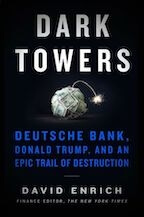What are you reading in March?

In our monthly book club, we discuss whatever we happen to be reading and ask everyone in the comments to do the same. What Are You Reading This Month?

In our monthly book club, we discuss whatever we happen to be reading and ask everyone in the comments to do the same. What Are You Reading This Month?
In their introduction to Legendary Children: The First Decade Of RuPaul’s Drag Race And The Last Century Of Queer Life, Tom Fitzgerald and Lorenzo Marquez write that theirs is a book designed to be read one-handed. They go on to clarify that—their hope is that this buoyant, defiant history of queer culture will send the reader straight to Google to seek additional information on Hector Xtravaganza, The Price Of Salt, or Tom Of Finland. Of course, there’s a second meaning to the phrase “one-handed reading,” and you can bet that Fitzgerald and Marquez relish the double entendre, as any great queens would. The sharp, smart playfulness of that single line encapsulates the tremendous appeal of Legendary Children: great seriousness of purpose set off by a mischievous, even lascivious wink. Using Drag Race as a framework to explore many, many corners of LGBTQ+ life is something of a stroke of genius, making this an excellent piece of TV criticism as well as an exploration of history. But honestly, even if you’re just in it for the odd dirty joke, you’ll walk away satisfied. [Allison Shoemaker]
When you exist at the intersection of multiple identities—for me, Black, female, queer, along with myriad others—navigating certain sociopolitical movements can become a frustrating reminder of how reductive some of the core rhetoric can be. Mikki Kendall brilliantly distills those shortcomings in her new collection of essays, Hood Feminism: Notes From The Women That A Movement Forgot. Kendall employs clear, unambiguous language to detail the many ways that mainstream feminism, as a general practice and structure, still fails to take into account the defining experiences of women who are not part of the majority (i.e., white, cisgender, and middle-class). It’s equal parts cathartic and informative, and while I’m not sure that I possess the qualifications to dub any book “required reading,” Hood Feminism is the text to read in order to gain an understanding of what true feminism should look like: layered, inclusive, and a source of solidarity for all women. [Shannon Miller]
If David Enrich’s new book lacks the same laser-sharp focus as his previous one (The Spider Network, about the rate-fixing financial scam of the early 2010s), it doesn’t make the story he has to tell any less vital to what should theoretically be a democracy’s well-informed public. If anything, Dark Towers: Deutsche Bank, Donald Trump, And An Epic Trail Of Destruction suffers from a surfeit of stories that should be told, and in attempting to cram them all into his narrative, Enrich weakens the central thread. The overriding tale is that of the colossal failure of Deutsche Bank, the financial behemoth whose egregious, decades-spanning misdeeds could stand in for dozens of supposedly too-big-to-fail institutions. Eventually focusing on the suicide of an influential accountant, the book’s sprawling exposé of financial crimes pops with the lurid appeal of a conspiracy thriller. But the most compelling of these stories is found in the book’s subtitle: how the shortsighted behavior of one bank single-handedly maintained Donald Trump’s facade of being a successful businessman in the years leading up to him assuming the presidency. Enrich knows this is juicy, attention-grabbing stuff, and does his best to lay out the appalling nature of the Trump family’s misdeeds without letting it overwhelm his larger story. But that’s also the key problem with Dark Towers—the Trump stuff is so world-altering in its consequences, it cries out to be its own book. Still, Enrich is performing an invaluable service: pulling back the curtain on the shadowy networks of power and money that enable the worst of humanity to seize power. [Alex McLevy]